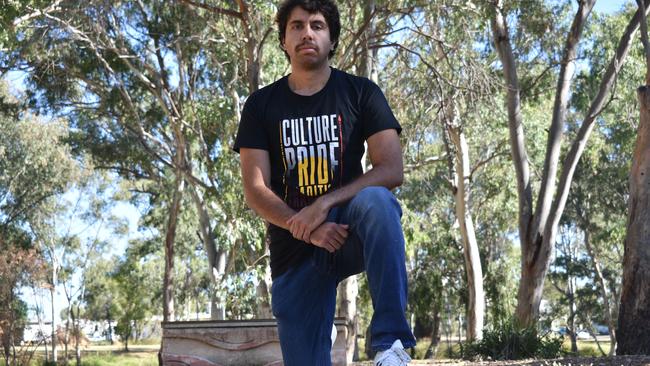Small towns play a big part: how to help the BLM movement
BLACK LIVES MATTER: Proud indigenous advocate says equity starts in our community, and there’s no time like the present to change national discourse.

Roma
Don't miss out on the headlines from Roma. Followed categories will be added to My News.
FROM the streets of Washington DC to the Yarning Circle in Roma, the Black Lives Matter and Indigenous Lives Matter movements have permeated every corner of the world.
Proud Mandandanji man and indigenous advocate Lane Brookes said it was only a matter of time before systemic racism erupted in protests in Australia.
While the past two weeks have been ignited by the death of African-American man George Floyd at the hand of a Minneapolis police officer in the United States, it has struck a chord with many indigenous Australians, who have seen 432men, women and youth die in police custody since 1991.
"Since that, nothing has changed and the incarceration rate of Aboriginals has tripled," Mr Brookes said.
"Out of those 400 odd deaths, not including homicides or murders police haven't investigated, no single charge has ever been laid, there has never been any disciplinary action which is frustrating.
"There has been a lot of criticism about the protests in the middle of the pandemic but when is the right time to be frustrated?"
On a local level, Mr Brookes said he had been appalled, but not surprised, at the 'ignorant' comments he'd seen on Roma Facebook pages.
"Black Lives Matter is not discrediting anyone else's life," he said.
"During the bushfires, we were saying 'save the koalas', but that doesn't mean we weren't trying to save the other animals.
"And all protests in Australia were peaceful, they didn't get violent like they did in America. Everyone was keeping their distance, using masks and sanitising.
"It's a lot to do with the way things are portrayed and people's close mindedness. People need to listen with the intent to understand, not with the intent to reply."
So how do we ride out the momentum of the protests and call to arms and enact real change in our community?
It starts on a grassroots level, Mr Brookes said.
"If we're going to change the national dialogue, it starts within our communities … as soon as we get things right on a grassroot level, it flows," he said.
"We need to engage with aboriginal people in the community, but we need allies who will do their own research.
"Knowledge is power and understanding. You need to open your mind to understand the information presented."
As for systemic change, Mr Brookes said that's a three pronged approach.
"A conversation needs to be held on a national and state level about the way the justice system is structured, and the way that police deal with Aboriginal and Torres Strait Islander people," he said.
"Secondly, the education in our schools needs to change, we need to teach about true history of invasion.
"And that stems back to that conversation we all have within ourselves around these issues that are our reality. We live and breathe this stuff every day.
"The only way to move forward is to sit down and have these conversations, and that needs to be done with true representation of aboriginal voices, to a point where we have equity, not equality."
Mr Brookes said non-indigenous allies have a role to play in what happens next.
"I really want to see people open their minds, do their research and have conversations," he said.
"We only make up four per cent of the population, we can't drive home change alone.
"It's a long road and it's not an easy fix, but it's got to be something done collaboratively. "Until we change some of the opinions and ignorance we can't have that equity."


